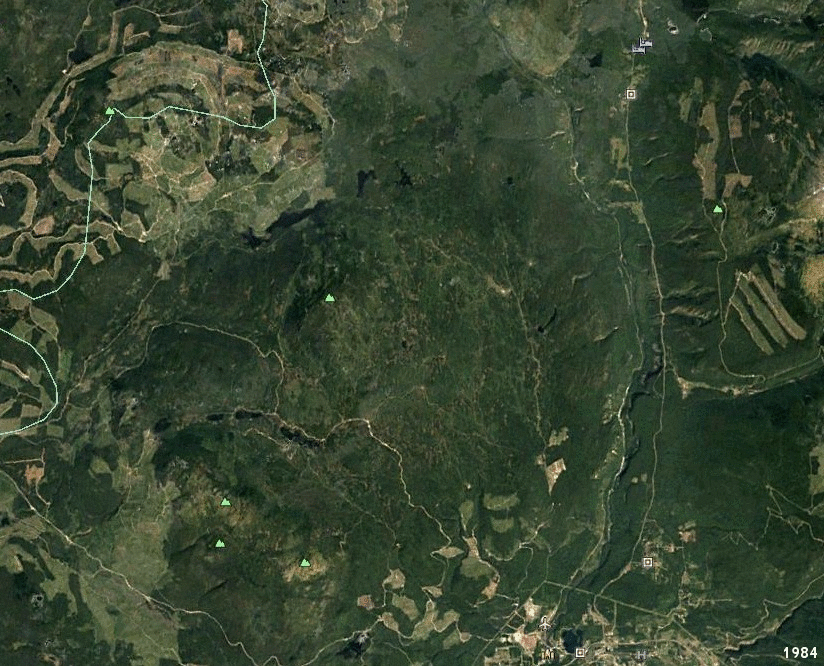
Hope for a huge, ancient and imperilled fish
First Nations are leading efforts to make sure lake sturgeon can find a home in...
Federal foot-dragging over protection of endangered southern mountain caribou herds has brought a strong rebuke from a Federal Court judge this week.
Groups struggling to protect caribou are hoping the judgment will speed up help for dwindling herds and act as a precedent for other species at risk needing help.
Justice Michael Phelan, in a decision on a judicial review launched by the Wells Gray Gateway Protection Society, described the lack of action by Environment Minister Catherine McKenna as “egregious.”
The Protection Society, which raised $33,000 from Upper Clearwater residents and received financial help from West Coast Environmental Law, asked for the judicial review after McKenna failed to respond to the group’s application for an emergency order to protect caribou under Canada’s Species At Risk Act.
Roland Neave with the protection society told The Narwhal that the application for an emergency order was urgent because Canfor Corp. has applied to log in caribou critical habitat, near the entrance to Wells Gray Provincial Park.
ICYMI: BC Liberals Grant Major Political Donor Permission to Log Endangered Caribou Habitat
“We applied for the emergency order in April 2017 and, under the regulations, the minister has 45 days to make a decision, but this took 13 months,” Neave said.
“Such fence-sitting is unconscionable when trying to protect a small herd of endangered caribou,” he said.
“We were delighted by Judge Phelan’s decision and his scathing comments about the minister’s long delay in reaching a decision.”
Under the Species At Risk Act the minister is obligated to recommend an emergency order if she believes the species faces imminent threats to survival or recovery.
The judgment says that citizens should not have to fundraise in an effort to force the minister to follow the legislation and Erica Stahl, West Coast Environmental Law staff lawyer, said she is delighted with that conclusion.
“It’s outrageous that the Wells Gray Gateway Protection Society had to go through such a lengthy, onerous process to get the minister to act,” said Stahl, who hopes the judgement will be a precedent for other cases where an emergency order is needed to protect an endangered species.

Logging near the south end of Wells Gray Park since 1984. Image: Damien Gillis via Google Maps
Earlier this month, days before the case was due to be heard in court, McKenna declared an “imminent threat” to the recovery of southern mountain caribou and told B.C. that more critical habitat must be protected from activities such as logging and oil and gas development or the federal government could step in.
The finding of “imminent threat” applies to 10 herds in B.C. and Alberta with less than 100 animals each and a detailed federal government recovery plan is expected in June.
If the minister issues an emergency protection order it means the federal government could make decisions about resource development that normally fall within the jurisdiction of provincial governments.
The crux of the question will be whether there is political will to stop industrial development in an effort to save the caribou.
“I don’t think there’s anything in legislation that says they can’t stop development, but we are going to have to wait and see the minister’s plan,” Stahl said.
Studies show that logging roads, oil and gas development and recreational back-country use opens up the large tracts of old-growth forests needed by caribou. As deer and other prey species move in, they are followed by predators such as wolves and cougars.
A controversial wolf cull program has been taking place in some areas of the province but, in the absence of a change in habitat management, numbers of caribou continue to shrink.
Habitat protection and restoration, not wolf culls, are a major part of the answer, Stahl said.
The southern mountain caribou population has dropped to about 3,800 animals this year, down from about 4,500 last year and some herds, such as the South Selkirk herd, with only three surviving members, are on the brink of extinction.
The Wells Gray herd, which sparked the request for an emergency order, had 120 animals last year, but a recent aerial survey found only 85 animals this year, Neave said.
“They are supposed to be running the survey again to try and find the missing animals,” he said.
Ironically, if the missing animals are not found, the Wells Gray herd should be included in McKenna’s definition of herds facing imminent threats to their survival, Neave said.
Get the inside scoop on The Narwhal’s environment and climate reporting by signing up for our free newsletter. Angello Johnson’s shoulders burn, and his arms...
Continue reading
First Nations are leading efforts to make sure lake sturgeon can find a home in...

We’re excited to share that an investigation by The Narwhal is a finalist for the...

A new documentary, Nechako: It Will Be a Big River Again, dives into how two...
